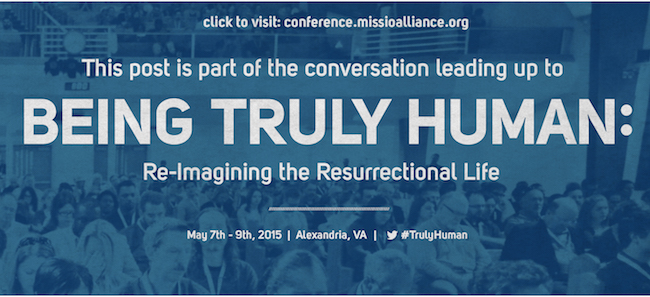Left Behind, Failed Peace, and the Human Implications of (Bad) Theology
Through my work with The Global Immersion Project, I have spent a significant amount of time over the years cultivating relationships among both Israelis and Palestinians as we partner together in cultivating a narrative of reconciliation. As is often the case when we approach a people or place with the hopes of being/bringing the needed change, I have been the one most changed by my friends and colleagues who reside in the Middle East. Behind so many of the subconscious stereotypes and prejudices I had acquired earlier in my life I began to experience the richness of friendship and brotherhood among people I had previously “known” only through the latest sound bite.
Something I have learned in the classroom of real life relationships with Jews, Christians and Muslims in the Holy Land is that our theology in the West has direct implications for the everyday lives of those in the Middle East. Often ignoring the remarkable movements of peacemaking, reconciliation and collaboration that are sprouting like mustard seeds of hope across the Holy Land, we often choose only to amplify of the violence, discord and disintegration of the region.
Why is that and what theology might we be allowing to consciously (or often subconsciously) own our perspective on the events in the Holy Land? In the wake of yet another failed peace negotiation between Israeli and Palestinian leaders and in front of the latest Left Behind movie about to hit theaters, this question is especially relevant.
One Christian leader recently shared on Twitter: “Watching events in #Israel . All those hellbent on destroying Israel playing directly into Biblical prophecy. #almostcomical
There are few perspectives that have done more harm for the cause of Christ over centuries of Church history than the one expressed above. We could get into why this has significant theological holes that lead to a fatalistic mentality by discussing the role of Apocalyptic literature found in the second half of Daniel, Mark 13 and much of Revelation, but that is for another time and place (see notes for further resources).
Here is the question we must ask: As followers of Jesus, how does speculating about the eschaton (Final Things or “End Times”) help us live into our vocation as active participants in the restorative Mission of God? We are to be a people who are marked by our love of God and neighbor. Choosing to view violence apathetically (or worse, with excitement of what it may mean for the future!) is anti-Jesus and anti the mission he invites us to extend on his behalf.
If we look at the Middle East, specifically the Holy Land, primarily through the lens of “prophecy fulfillment” then we are unable to first and foremost look at its inhabitants as humans loved by Jesus. We reduce Image Bearers into pawns within a divine drama. Within Church history you will see “this is the end times!” being proclaimed dozens of times. These pronouncements are nothing new; at one point Napoleon Bonaparte was thought to be the anti-Christ. In the end, this theology fosters a loss of humanity both in those we condemn and in ourselves. We become less that human.
What if instead of adhering to this fatalistic eschatology we choose to live into a realized eschatology? In other words, what if we understand the life, death, resurrection and ascension of Jesus as eschatological events? In the Christ-event the end becomes now. In Jesus’ inauguration as King of the Kingdom, he sits enthroned as one who seeks to bring about restoration and reunion between God and the cosmos not through violent overthrow, but through suffering and self-sacrifice. When Jesus announces the in-breaking of the Kingdom in Mark 1, the end collides with today.
No, this doesn’t mean that everything is going to be bright and rosy, but it does mean that our future is one of hope that was already fully realized in Jesus. Our job isn’t to project how our world with decay before finally being restored, but to participate in the restoration God continues to bring about even (if not especially!) in the places we least expect.
—
Notes:
Fatalistic Theology — Humans have no roll to play in God’s Mission other than to save disembodied souls for an otherworldly heaven. Things will get progressively worse and violent until Christ returns to save us from a fallen world. This is rooted in a rather new theology (late 1800′s, early 1900′s) propagated by John Nelson Darby, called dispensationalism.
Eschatology — The study of the “End Times” or “Final Things.”
Realized Eschatology — The view that the End Times aren’t only a distant event in the future, but that, in Jesus, the end becomes now. In other words, Jesus’ life, death and resurrection were decisive and his announcement of the Kingdom of God was actually a proclamation of God’s redemption unfolding in real time and space. With that said, I think it more accurate to say, “Partially Realized Eschatology” in that we clearly don’t live in a perfect world…only Christ’s return will make the redemption project fully realized.
Further Theological & Historical Resources — My friend, Kurt Willems posted a recent blog with a list of great resources to consider as we move deeper into this. Many on his list have deeply informed my perspective as well.
[Photo by gnuckx, CC via Flickr]




